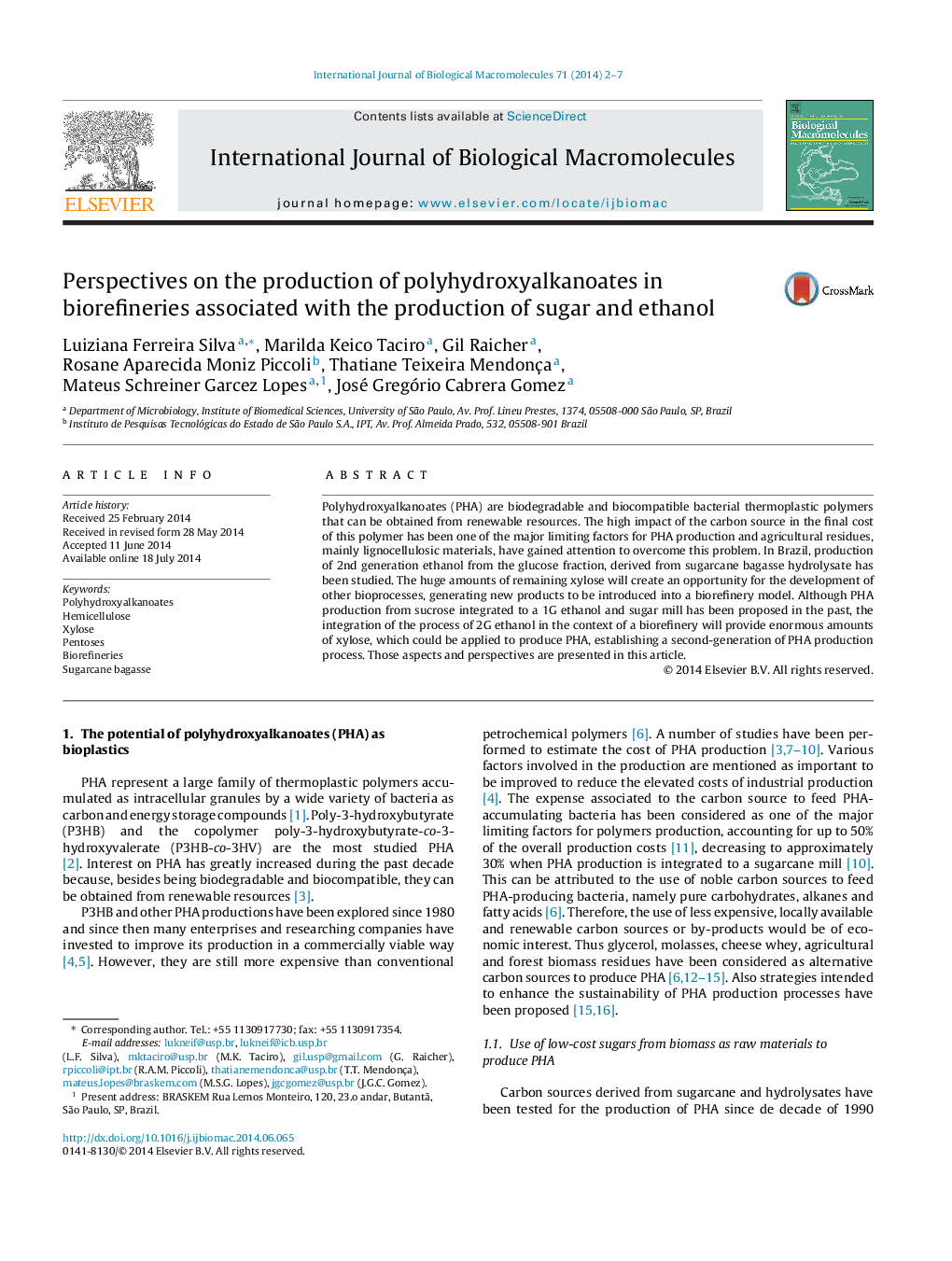| Article ID | Journal | Published Year | Pages | File Type |
|---|---|---|---|---|
| 1986438 | International Journal of Biological Macromolecules | 2014 | 6 Pages |
Polyhydroxyalkanoates (PHA) are biodegradable and biocompatible bacterial thermoplastic polymers that can be obtained from renewable resources. The high impact of the carbon source in the final cost of this polymer has been one of the major limiting factors for PHA production and agricultural residues, mainly lignocellulosic materials, have gained attention to overcome this problem. In Brazil, production of 2nd generation ethanol from the glucose fraction, derived from sugarcane bagasse hydrolysate has been studied. The huge amounts of remaining xylose will create an opportunity for the development of other bioprocesses, generating new products to be introduced into a biorefinery model. Although PHA production from sucrose integrated to a 1G ethanol and sugar mill has been proposed in the past, the integration of the process of 2G ethanol in the context of a biorefinery will provide enormous amounts of xylose, which could be applied to produce PHA, establishing a second-generation of PHA production process. Those aspects and perspectives are presented in this article.
